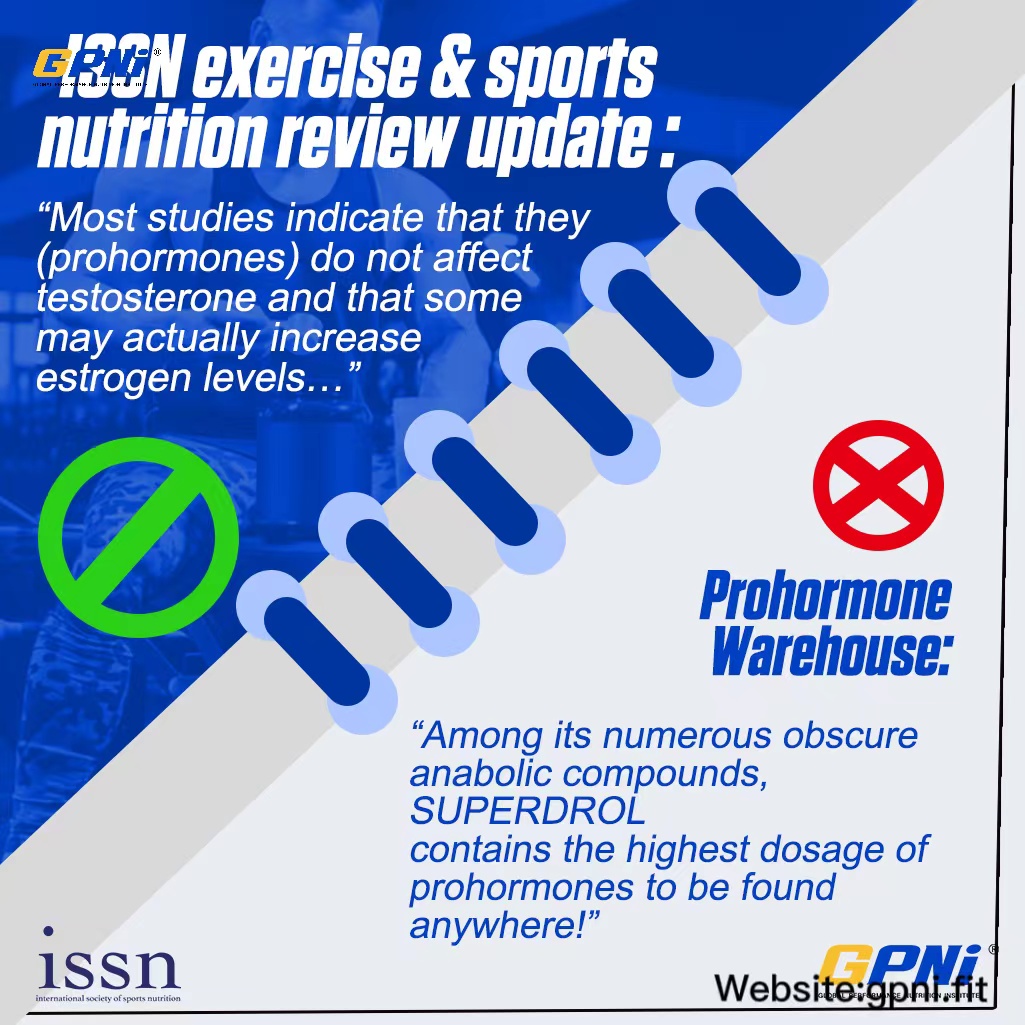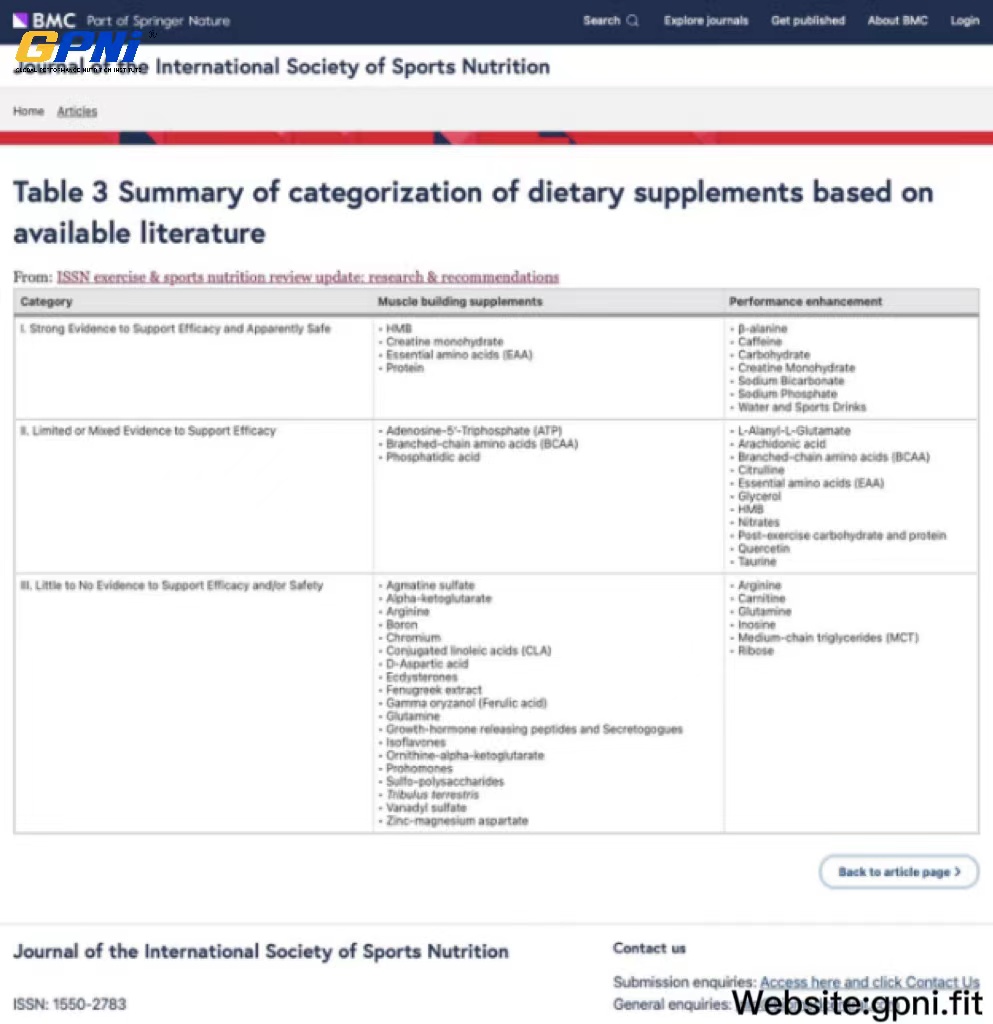Not every supplement lives up to the claims you see on their labels. While some can improve sports performance, others may waste your money or be dangerous. Identifying products for efficacy and safety before you take them is an important first step. GPNi can help you analyze the science behind the labels.
Contaminated Products
There are many wild claims about nutritional supplements. Vitamins, minerals, and herbal products do not have the same regulation as prescription medications. The U.S. Food & Drug Administration has a health fraud product database that can be searched, while the U.S. Anti-Doping Agency website documents numerous examples of supplement contamination. It is important to recognize that supplements may not contain active substances listed on the label, or, they may include dangerous ingredients that users do not know about. If you clicked on the health fraud product database link, did you notice that several supplements on the list were contaminated with sildenafil (Viagra), a medication used to treat erectile dysfunction in men? Choosing products that have the Good Manufacturing Practices (GMP) or Certified for Sport® (NSF) on the label ensures products contain what they say; providing consistent and safe ingredients.
Dangerous side effects
A New England Journal of Medicine report found emergency room visits for supplement-related symptoms include heart palpitations, chest pain, or rapid heart beat. These side effects are most common with weight-loss, energy, bodybuilding, and sexual-enhancement supplements, and seen at a higher percentage than prescription stimulants [1]. One way to avoid these issues is to understand what you are taking.

Choose the best ingredients
The International Society of Sports Nutrition (ISSN) exercise & sports nutrition review update for research & recommendations discusses the science behind supplements for muscle building and sports performance, and was written by PhD researchers who are experts in their fields [2]. Use this review as a reference guide for selecting evidence-based supplements that are specific to the sport and needs of each individual. This will increase safety and outcomes, while quickly identifying products with misleading claims.
An example:
The ISSN paper identifies limited scientific basis and possible negative effects of taking prohormones (e.g., androstenedione, 4-androstenediol, 19-nor-4-androstenedione, 19-nor-4-androstenediol, 7-keto DHEA, and DHEA, etc.) Despite the lack of data showing any physiologic benefit, prohormone consumption can still lead to positive drug tests in elite athletes. If they don’t improve performance and are banned substances—why take them [2]? Which source should be trusted with your safety and performance?

Source: Prohormone Warehouse Source: ISSN exercise & sports nutrition review update
Both the ISSN and GPNi have a classification system to help you choose supplements that perform. Prohormones, are classified as “little to no evidence to support efficacy and/or safety (ISSN)” and “Red—no solid research and maybe some health concerns.” The ISSN exercise and sports nutrition review update lists many options of supplements that are safe, effective, and have science to back up muscle building and sports performance.
ISSN Supplement Classification | Strong evidence to support efficacy and apparently safe | Limited or mixed evidence to support efficacy | Little to no evidence to support efficacy and/or safety |
GPNi Traffic Light System Classification | Green—Good & Solid Research | Orange—Some Limited Research but Not Considered Harmful | Red—No Solid Research and Maybe Some Health Concerns |
Eating enough nutrient rich foods to meet an athlete’s energy needs is the first step to effective sports nutrition. The studies on protein and carbohydrate intake improving exercise performance and maintaining muscle mass far exceed the science on most supplements on the market. Supplementation, if chosen, should ensure that:
- The product contains what the label claims
- The nutrient is safe
- The ingredients improve health and performance
Dietary supplements have a number of potential pitfalls: contamination, side effects, and false claims. There are science based resources with up-to-date supplement information to help medical providers, sports nutritionists, coaches, trainers and athletes discern what and what not to put in a highly performing body.
- The National Institutes of Health has a fact sheet for health professionals: Dietary Supplements for Exercise and Athletic Performance
- You can learn more about drug testing and banned substances in sports from GPNi: Drug Testing in Professional Sports

By Melissa Shays, ND, LAc, CISSN
Dr. Melissa Shays is a Naturopathic Physician and licensed Acupuncturist. She is a Certified Sports Nutritionist from the International Society of Sports Nutrition. Melissa has attended sports medicine trainings at Medicine of Cycling at USA Cycling and US Ski & Snowboard Sports Medicine. Currently, she is completing the Harvard Medical School Postgraduate Medical Education—Effective Writing for Health Care program.
References
- N Engl J Med 2015; 373:1531-1540 DOI: 10.1056/NEJMsa1504267
https://www.nejm.org/doi/full/10.1056/NEJMsa1504267 Kerksick, C.M., Wilborn, C.D., Roberts, M.D. et al. ISSN exercise & sports nutrition review update: research & recommendations. J Int Soc Sports Nutr 15, 38 (2018). https://doi.org/10.1186/s12970-018-0242-y
https://jissn.biomedcentral.com/articles/10.1186/s12970-018-0242-y








